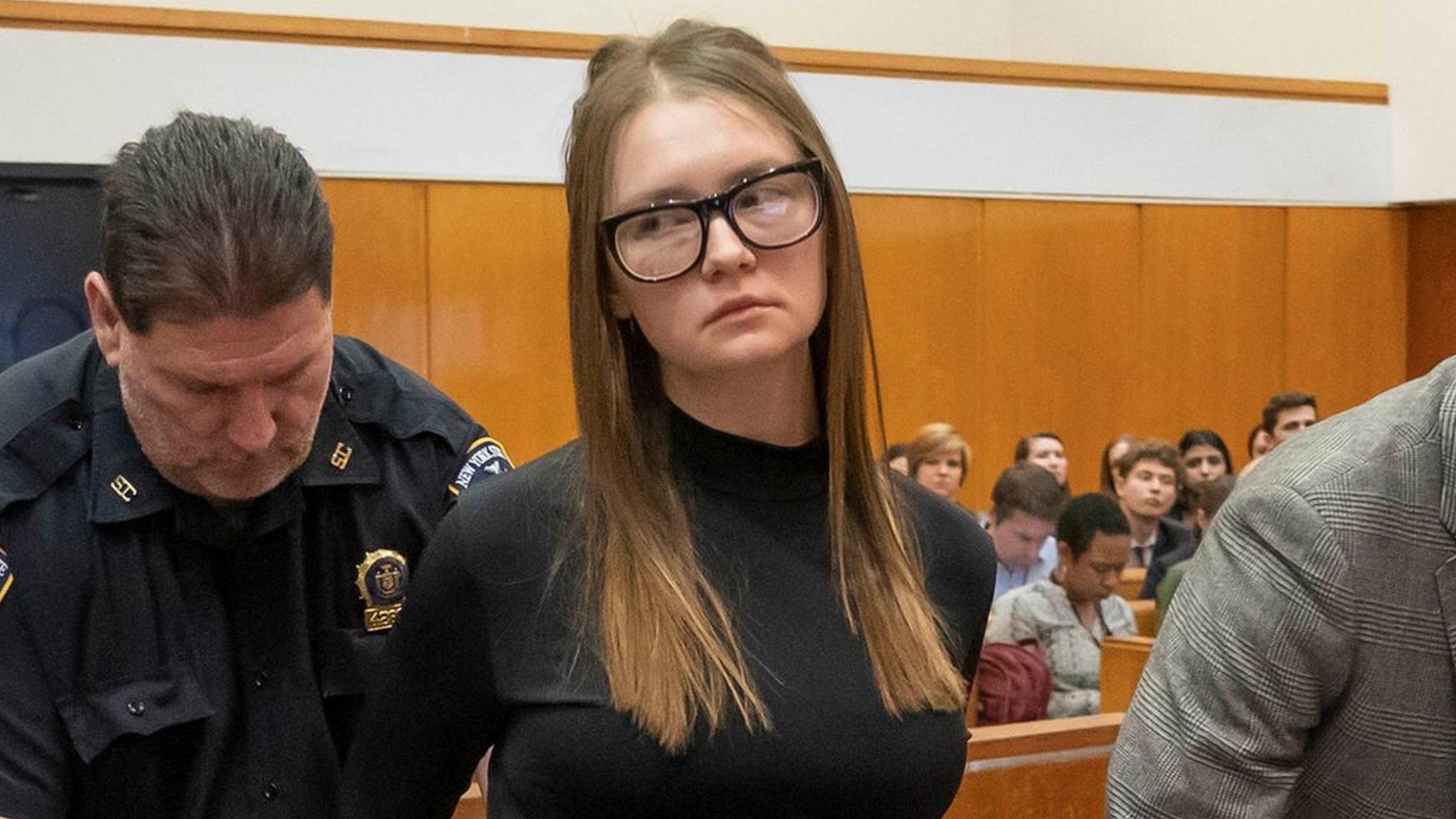Fake heiress Anna Sorokin: 'Crime pays, in a way'
- Published
Anna Sorokin: "I never thought I was cheating"
The con woman known as "the fake heiress" for posing as a wealthy socialite in New York says she is trying to make the best of her newfound infamy since her release from prison.
When asked if crime pays, Anna Sorokin told BBC Newsnight: "In a way, it did."
Sorokin was paid $320,000 (£230,000) by Netflix for her story and says she has been offered other deals.
She went to jail after tricking banks, hoteliers and friends out of hundreds of thousands of dollars.
The story of her exploits - under the pseudonym Anna Delvey - went viral in New York Magazine in 2018, sparking instant interest from TV producers.
"I never asked for Netflix to buy my story, it just happened," says Sorokin, who was released on parole in February after more than three years behind bars. "And everything else, it just spun out of my control. It's not like I orchestrated anything."
Sorokin was not able to keep all the Netflix money, owing to a New York law that prevents criminals from profiting from their notoriety. The company fully complied with the law and the authorities froze Sorokin's bank account, allowing her victims to make claims to it first. At least $170,000 was used to pay back banks.
Sorokin turned 30 in prison, but she was in her mid-twenties when she spent time in New York City, telling people she had a $60m trust fund and an ambitious project to create an eponymous arts foundation.
She was, in fact, a recent magazine intern, who came from an ordinary family of Russian immigrants living in Germany. By staying in expensive hotels and presenting a jetset life on Instagram, she managed to trick others into believing her fantasy and picking up her bills. Using fake documents, she even convinced a bank to give her a $100,000 overdraft, before the police finally tracked her down.
Sorokin now claims the prosecution played a major role in creating her media persona during her high-profile trial.
"The prosecution totally misrepresented my motives. They said I paraded around New York, posing as an heiress. What happened was strictly between me and financial institutions, it was none of their business. They portrayed me as a wannabe socialite party girl and that was never my goal," she says.
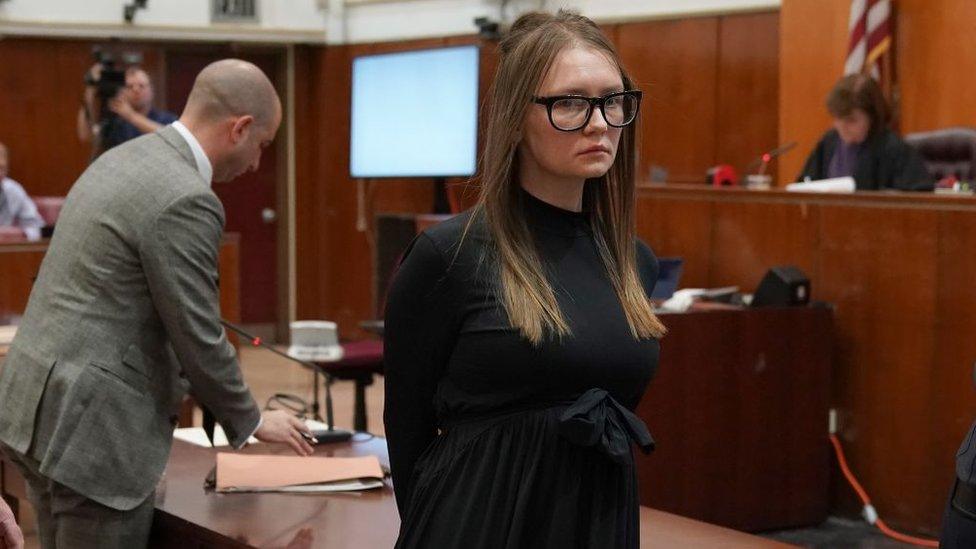
Anna Sorokin was sentenced in May 2019
Though Sorokin did enjoy champagne lunches and luxury holidays, she primarily had her sights set on creating her arts foundation and she fraudulently sought a $22m loan to try to get it off the ground. She even produced a high-end brochure (but never paid the designer) and claimed to have the backing of celebrity artists, such as the late Cristo, for the launch party. (Before the artist died last year, his publicist told the BBC the claim was pure fabrication.)
Sorokin's defence was also built around a "fake it until you make it" narrative. Her lawyer told The Cut he enlisted a stylist, external so she could keep up appearances in the courtroom.
Asked now when Anna Sorokin started to become Anna Delvey, she says: "I always was Anna Delvey."
"[Others] portrayed me as someone very manipulative, which I don't think I am," she says. "I was never too nice of a person. I was never trying to talk my way into anything. I just told people what I wanted and they gave it to me, or I would move on."
Sorokin was found guilty of four counts of theft of services, three counts of grand larceny and one count of attempted grand larceny in April 2019. She was acquitted of two other charges.
Since her release from prison, she says she has been inundated with media requests and she has hired her own filmmaker to take control of her narrative. "I am writing my book, I have my NFT [non-fungible tokens] project, and my merch, and [I am working on] prison reform," she says. "I am trying to turn the attention I am getting into something positive."
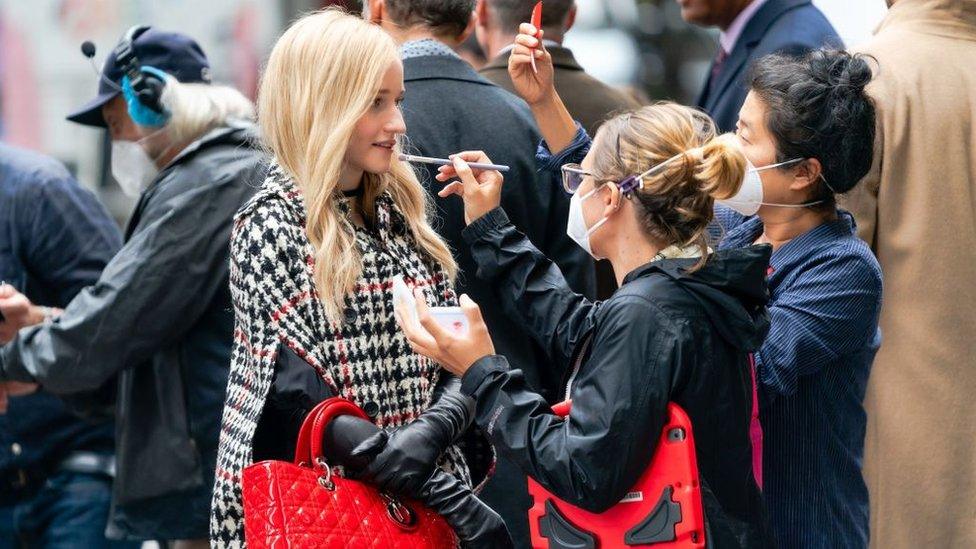
Actress Julia Garner - who has the lead role in Netflix's Inventing Anna, out later this year - visited Sorokin in prison
She insists she does not consider being a convicted con artist as a badge of honour.
On social media, however, she is not shying away from this reputation. Earlier this week, she tweeted an image of a stack of books themed on money and trickery, including Den of Thieves and The Biggest Bluff.
Though she has previously spoken of regret, she now says that is not the right word, because that implies sadness and she is not sad about what she did, even though she wouldn't do it again.
Her lawyer, Todd Spodek, told the BBC that she is working on an appeal and he anticipates that she will be deported back to Germany in due course.
Sorokin says she will try to stay in the US.
This story is based on Anna Sorokin's interview with Emily Maitlis for BBC Newsnight. UK audiences can watch more via BBC iPlayer. The podcast series Fake Heiress is on BBC Sounds
Related topics
- Published20 February 2021
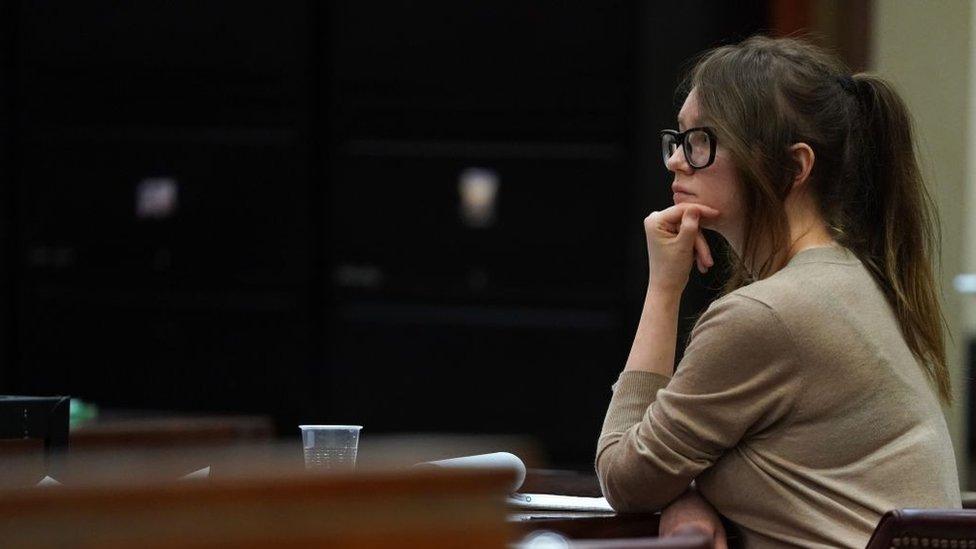
- Published26 April 2019
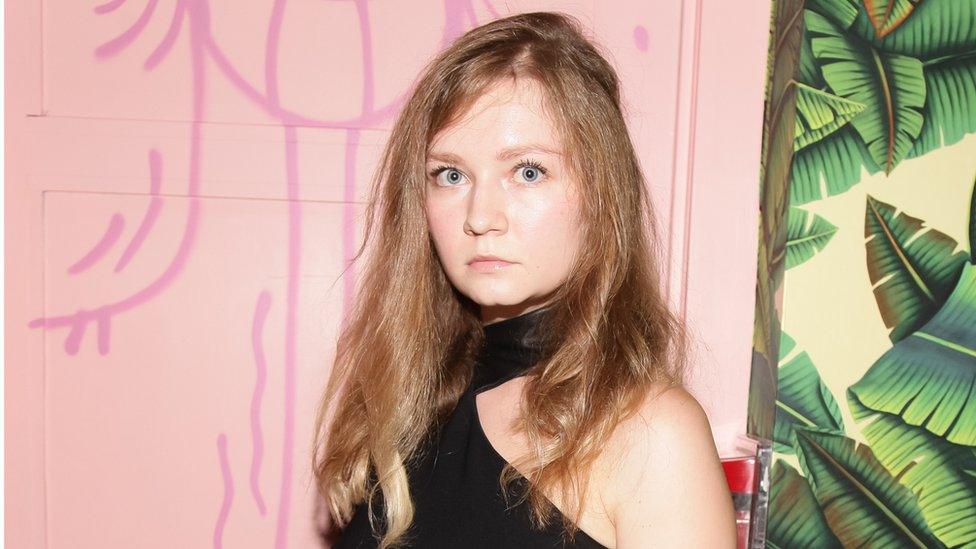
- Published11 May 2019
